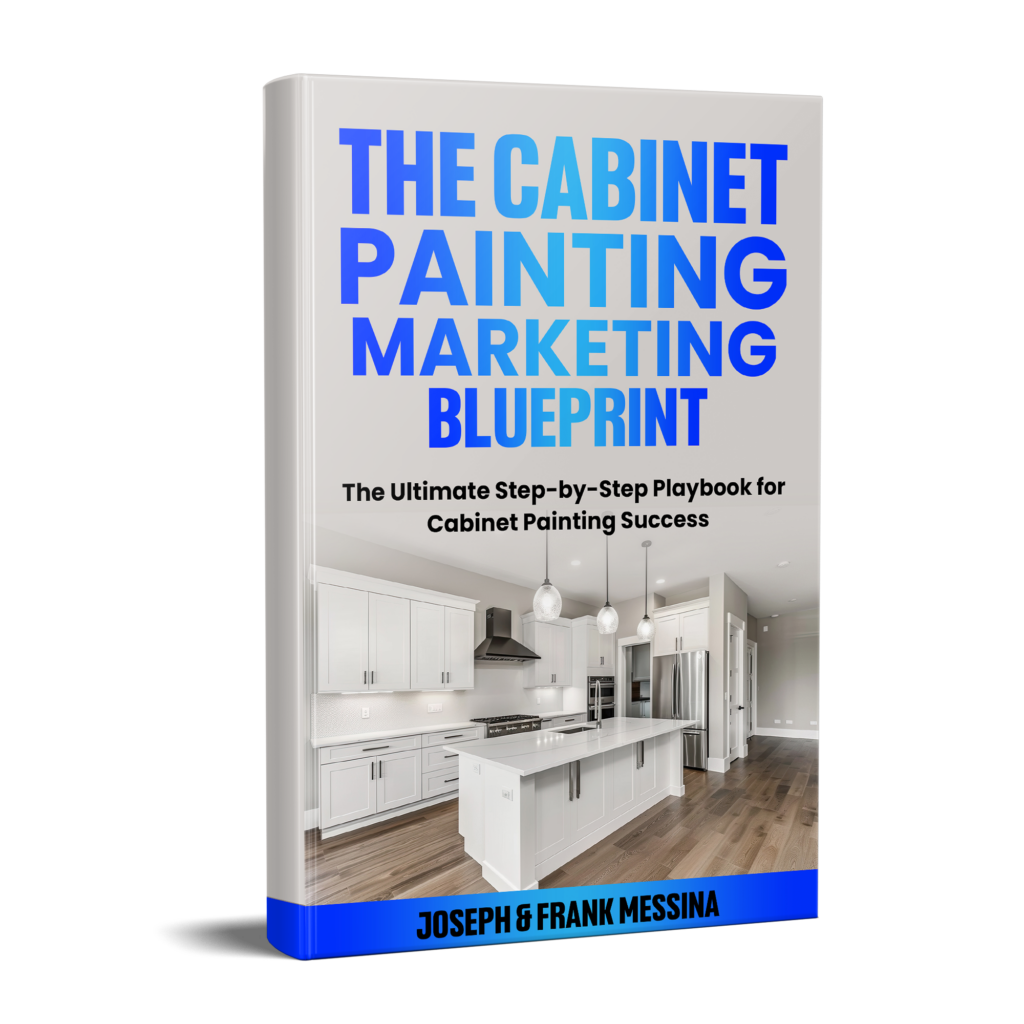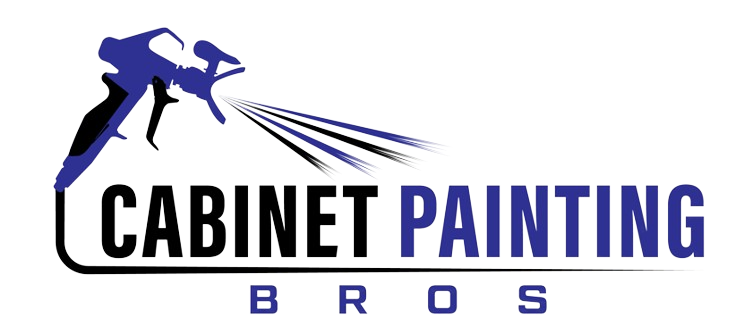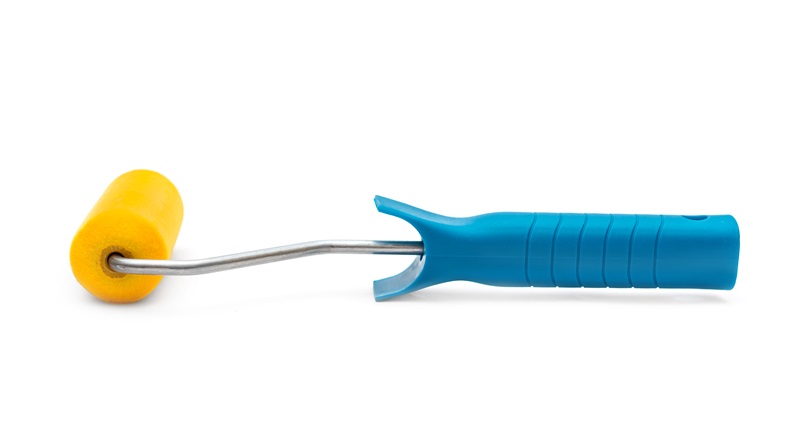The Best Roller for Painting Cabinets: Professional Guide to the Smoothest Finish
Choosing the best roller for painting cabinets is crucial for achieving a smooth, professional finish. After completing over 300 kitchen cabinet projects annually, we’ve found that combining high-quality fine finish rollers for fixed pieces with airless spraying for doors and drawers delivers the perfect balance of efficiency and quality. This hybrid approach has become the cornerstone of our successful cabinet painting business model.
Understanding Roller Types for Cabinet Painting
The smoothest finish starts with choosing the right roller. We encourage trying different options to find what works best for your specific needs and preferences. Through extensive experience, we’ve found several excellent choices that consistently deliver professional results.
The 5mm Microfiber roller is a versatile option that works exceptionally well across various applications. It provides excellent coverage and a smooth finish with water-based paints. Mohair rollers with a 3/16″ nap also provide outstanding results for cabinet surfaces. These professional-grade rollers leave minimal stipple, making them perfect for achieving that sought-after factory-like finish.
Velour rollers, also with a 3/16″ nap, offer another excellent option. Their durability and minimal lint shedding make them ideal for multiple uses, while still providing a very smooth finish. For contractors handling multiple projects, these rollers offer a great balance of quality and cost-effectiveness.
Special Resource: The Cabinet Painting Marketing Blueprint

Do you want to land more high-paying kitchen cabinet painting jobs? Learn from the Cabinet Painting Bros who consistently land 300+ cabinet painting projects a year! Download the Cabinet Painting Marketing Blueprint, packed with proven strategies and insider tips to grow your painting business. Don’t miss out on this step-by-step guide to generating cabinet painting leads like a pro.
Professional Hybrid Approach to Cabinet Painting
Our business model, which has successfully scaled to 300 kitchen projects annually, combines the efficiency of roller application with the perfect finish of sprayed doors. This hybrid approach offers several advantages:
Fixed Pieces and Side Panels
For cabinet boxes, side panels, and fixed pieces, we use fine finish rollers because:
- No need for extensive masking and protection
- Faster setup and cleanup time
- Reduced material waste
- Lower equipment costs
- Excellent results when proper technique is used
Doors and Drawers
We spray all removable pieces using an airless sprayer because:
- Factory-quality finish
- Perfect uniformity
- Faster production time
- Controlled environment
- Superior durability
Cost-Effective Business Model
This hybrid approach has proven highly successful for several reasons:
1. Competitive Pricing
By using rollers for fixed pieces, we significantly reduce:
- Setup time
- Material waste
- Labor costs
- Protection requirements
2. Efficient Production
Our model allows us to:
- Complete projects faster
- Reduce onsite time
- Maintain high quality
- Scale operations effectively
DIY Recommendations
For DIY enthusiasts, we recommend:
For Fixed Pieces
Invest in quality fine finish rollers and try different options to find your preference:
- 5mm Microfiber for versatile application
- Mohair 3/16″ for final coats
- Velour 3/16″ for general application
- High-density foam for smooth surfaces
- Microfiber 3/16″ for water-based paints
For Doors and Drawers
Consider renting an airless sprayer:
- Better finish quality
- Faster application
- More consistent results
- Worth the rental cost
Professional Best Practices
Success with roller application requires attention to detail:
Surface Preparation
- Thorough cleaning
- Proper sanding
- Quality primer
- Dust-free environment
Application Technique
A crucial aspect of achieving a smooth finish is proper back rolling technique. Here’s how to apply:
First, apply your paint with light pressure and a consistent rolling speed, being careful not to overload the roller. Then, without adding more paint, immediately perform a final back roll. The back roll should be done in one continuous motion from top to bottom (or end to end), using very light pressure. This final pass helps eliminate roller marks, evens out the coating, and creates a smoother finish.
Key points for perfect application:
- Use light pressure to avoid creating texture
- Maintain consistent rolling speed
- Don’t overload the roller with paint
- Always finish with a light back roll
- Keep a wet edge to prevent lap marks
- Back roll in straight lines, not W patterns
Material Considerations
For the best results with water-based finishes:
- Use 5mm Microfiber, Mohair, or 3/16″ Microfiber rollers
- Account for quick drying time
- Apply multiple thin coats
- Light sanding between coats
Scaling Your Business
This hybrid approach to cabinet painting has allowed us to scale effectively while maintaining quality:
Production Efficiency
- Standardized processes
- Clear workflow
- Quality control points
- Efficient resource allocation
Client Benefits
- Competitive pricing
- Professional results
- Faster completion
- Minimal disruption
The Best Roller For Painting Cabinets
The best roller for painting cabinets ultimately depends on your specific needs and preferences. We encourage trying different options, including the versatile 5mm Microfiber, traditional Mohair and Velour rollers with 3/16″ nap, and other fine finish rollers to find what works best for you. All these options can deliver excellent results when proper technique is used. Combined with sprayed doors and drawers, this approach offers the perfect balance of efficiency and quality.
Whether you’re a DIY enthusiast or a professional contractor, this hybrid method provides excellent results while keeping costs manageable. For professionals looking to scale their business, our model proves that you don’t need to spray everything to deliver high-quality results. By focusing on efficiency and smart resource allocation, you can build a successful cabinet painting business that delivers excellent value to clients while maintaining healthy profit margins.
Special Resource: The Cabinet Painting Marketing Blueprint

Do you want to land more high-paying kitchen cabinet painting jobs? Learn from the Cabinet Painting Bros who consistently land 300+ cabinet painting projects a year! Download the Cabinet Painting Marketing Blueprint, packed with proven strategies and insider tips to grow your painting business. Don’t miss out on this step-by-step guide to generating cabinet painting leads like a pro.

